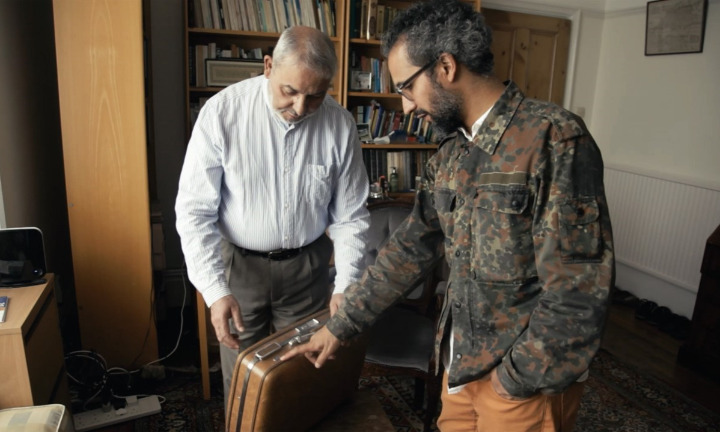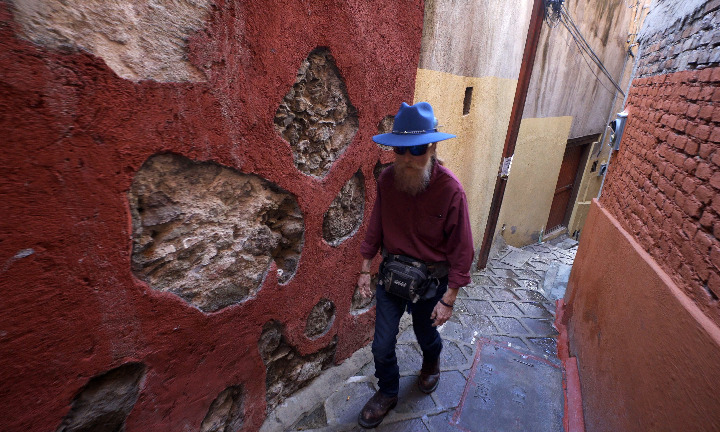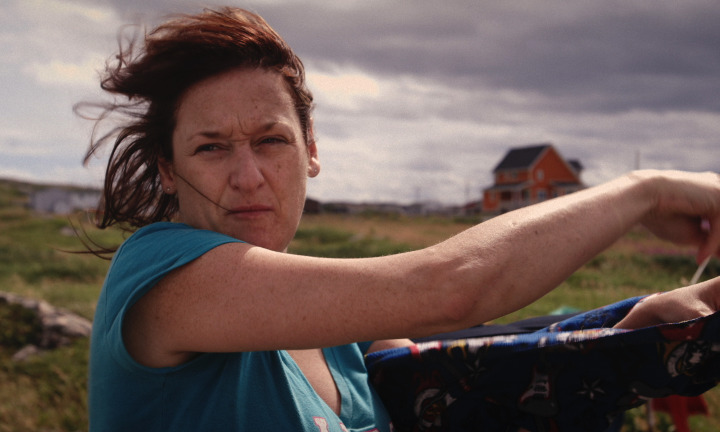Growing up in the “nice leafy London suburb” of Croydon, filmmaker Khalid Shamis says he was uncertain about his ex-pat Libyan father’s work, travel schedule and especially the contents of his off-limits study.
Occasionally, his father appeared on television, but always in some sort of disguise. The reason was that Ashur Shamis, a journalist and political activist, was a wanted man, a target of Libyan leader Mu’ammar Gaddafi, for his work with the National Front for the Salvation of Libya, a group founded in 1980, which not only campaigned against but attempted coups against the dictator. The phrase “stray dogs” of the title is how Gaddafi declared his enemies in exile, animals that needed to be executed.
Given the viciousness of the Gaddafi regime, one of the surprises of this political film is how wryly funny it is. Shamis Jr, bears some residual resentment toward his aging dad—“For the forty years he was in exile in London, it felt like killing Gaddafi was more important to him than living with us.” Now an adult, he grills his father, like a cross-examining lawyer, then reacts with shock at the evidence he finds…
There’s the scene where Ashur Shamis unlocks his briefcase to reveal a sheaf of foreign passports worthy of Jason Bourne. Ashur also has a spec sheet to purchase Italian Franchi SPAS-12 combat shotguns, the Velociraptor-killing weapon in Jurassic Park. Khalid expresses incredulity that his father could be planning military efforts in the study while his four kids were watching television in the next room: “So while we were in the other room watching Rambo, you were planning Rambo?”
Later, Shamis badgers his shy mother, Shamela, about how much she knew. She insists she maintained deliberate ignorance of her husband’s sources of money and underground activities, mocking her son’s persistence. Was his father a terrorist, asks Khalid.
“He was ISIS. Is that what you want me to say?,” she retorts.
The latter part of the film, after Gaddafi was deposed and killed in 2011, recounts Ashur’s journey back to Libya. After the initial euphoria of reconnecting with family members, he soon found himself despondent. The country he had been fighting for decades no longer existed, beset by new militant factions.
Early reports of Shamis’s film, when it was in development, indicate his intended canvas was broader, surveying the experiences of other “stray dogs,” his father’s collaborators in the anti-Gaddafi opposition in exile. But the more personal approach taken here, interweaving taped phone calls from relatives, home video, personal interviews and extensive archival television footage, proves a winner. Who hasn’t wondered what their parents were secretly up to, and how few discover it was something so significant?
The Colonel’s Stray Dogs premieres at Hot Docs 2021.











